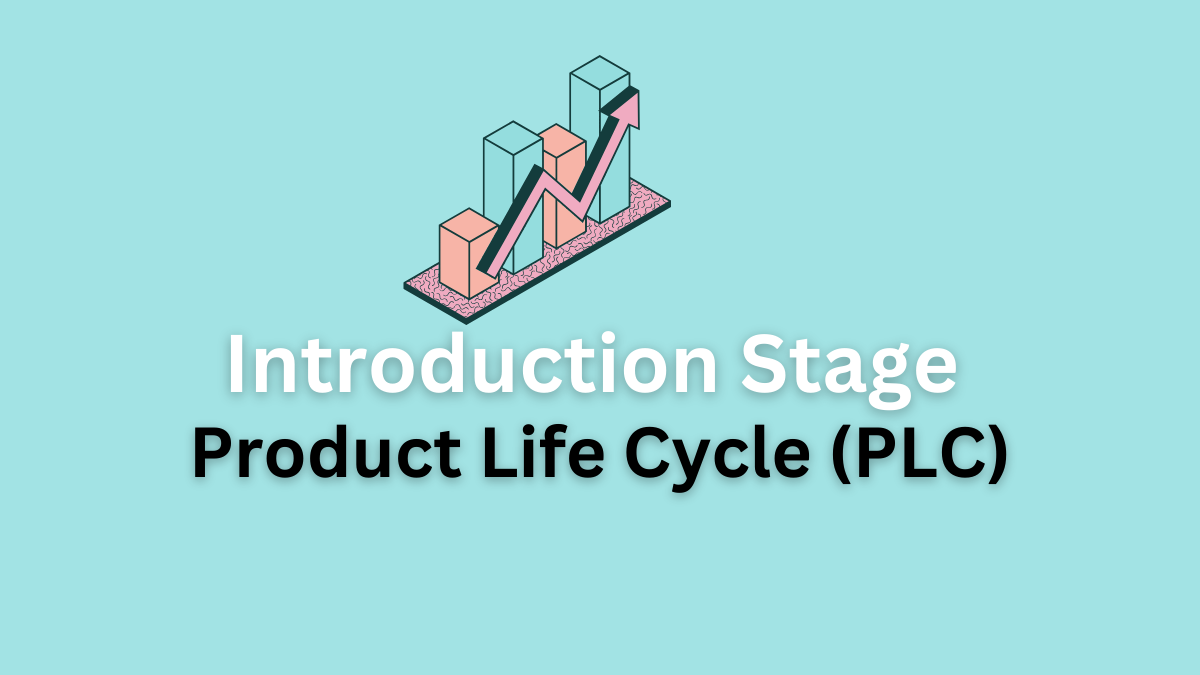What is Introduction Stage in PLC?
The introduction stage in the product life cycle (PLC) is when a brand-new item meets the world for the first time. During this phase, companies invest heavily in advertising to spread the word and create buzz.
Customers are just learning about the product, so sales might start slow. Think of it as the baby steps of a product. Businesses focus on explaining what the product does and why it’s great.
Strategies like special promotions, free samples, and engaging advertisements are used to make people notice. It’s a critical time because the product’s reputation is built here, setting the stage for its future journey in the market.
Characteristics of Introduction Stage
In this stage of PLC, it’s all about introducing your product to the world and making people curious to try it. Below are its key features:
- Fresh Start: It’s like the first day of school for your new product. People are just getting to know it.
- Little Competition: Imagine having a whole playground for yourself. In this stage, there’s almost no one else around.
- Slow and Steady Growth: Sales are like a small plant just starting to grow. They start from zero and grow slowly because most people don’t know about the product yet.
- Big Investments: Companies have to spend a lot of money to introduce the product. It’s like they’re planting a special seed, but it costs a lot.
- Slightly Pricier: The price of the new product is usually a bit higher. It’s because it’s new, special, and took a lot of work to create.
Read More: STP in Marketing – Definition
Strategies for Introduction Stage
In the introduction stage, the key is to make people aware, interested, and excited about the new product. These strategies are like magical spells that make customers curious, engaged, and ready to experience what your product offers. They are:
Create Buzz with Advertising
In the introduction stage, imagine your product is a new superhero in town. Just like superheroes have posters and trailers, your product needs ads to tell everyone about its superpowers. These ads create excitement and make people curious to learn more.
Personal Selling
Think of your product as a new friend. Sometimes, friends need a little introduction. Businesses use personal selling, where friendly salespeople meet customers and explain why the product is amazing.
Read More: Positioning in Marketing
Free Samples
Remember when you got a free sample of your favorite ice cream? Giving out samples works the same way. Businesses offer free tastes or trials of their product. It’s like a mini adventure before the big journey, making people eager for more.
Public Relations
Just like good news travels fast, businesses use public relations to share positive stories about the product. It could be in newspapers, TV shows, or online. Positive stories create a good reputation, like when your friend tells everyone about your amazing party.
Sales Promotions – Limited-Time Offers: Imagine a treasure hunt with a limited-time map. Businesses create special offers for a short time, like discounts or bonuses. People rush to get these treasures before they vanish. Limited-time offers make customers feel special, encouraging them to buy.
Read More: Target Market – Definition
Educational Events
Learning can be fun, right? Companies organize events where people can learn about the product in an enjoyable way. It’s like attending a cool workshop. These events teach customers how the product can solve their problems, making them more likely to buy.
What is a Product Life Cycle (PLC)?
The product life cycle is a concept that describes the journey of a product from its introduction to the market, through phases of growth, maturity, saturation, and eventual decline or removal. Much like a human’s life stages, products also go through these phases.
In the introduction stage, a product is born, and awareness is created. As it grows, it matures, and the market becomes saturated. Eventually, it faces a decline due to factors like competition or changing customer preferences. Understanding these stages helps businesses make informed decisions about pricing, marketing, and the overall management of their products throughout their lifespans.
Read Next: Organizational Market Segmentation
Arti Kushmi holds a BBS (Bachelor in Business Studies) degree and shares her business and marketing knowledge through this website. While not writing she will be reading and enjoying the moment.
